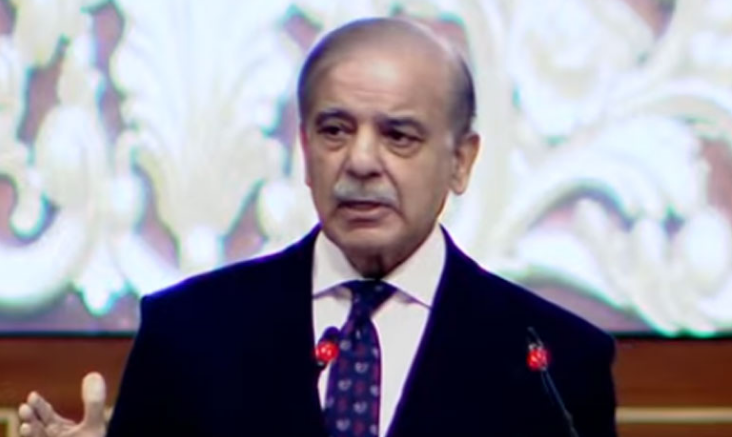Islamabad (Web Desk): Prime Minister Shehbaz Sharif has called for a united approach to create sustainable and scalable solutions for the education of girls.
During the opening of the two-day International Conference on Girls' Education in Muslim Communities: Challenges and Opportunities, in Islamabad on Friday, the premier emphasized the importance of this cause, stating that it is one that deserves not only attention but also significant resources and advocacy.
PM Shehbaz noted that over the coming decade, millions of young girls will enter the job market, and with the right education, they can not only uplift their own lives, families, and nations but also contribute significantly to the global economy.
He said that it is the duty of society to support girls' rights, aspirations, and dreams, ensuring that no cultural or social obstacles prevent them from achieving their full potential.
The prime minister highlighted the considerable challenges faced by the Muslim world, including Pakistan, in providing girls with equitable access to education.
Despite Pakistan’s rich cultural and historical legacy, he pointed out that women make up more than half of the country’s population, but the literacy rate for females remains alarmingly low at just 49%.
Furthermore, he stated that approximately 22.8 million children between the ages of five and sixteen are currently out of school, with girls representing a disproportionate number of those excluded from education.
In addressing these disparities, Sharif drew attention to initiatives like the Daanish schools, which aim to offer quality education to disadvantaged children in rural and underdeveloped areas.
He explained that the success of this initiative has led to its expansion into more remote regions of the country, giving hope for a more inclusive and prosperous future.
PM Shehbaz also spoke of the government’s efforts to improve educational opportunities through its flagship youth programs. These initiatives provide scholarships, vocational training, and skill development in high-demand areas such as Artificial Intelligence, data analytics, and cybersecurity as well as provision of laptops to students excelling in their studies.
The prime minister reaffirmed that the pursuit of knowledge is a sacred obligation for all Muslims, regardless of gender, as emphasized by the teachings of Holy Prophet Hazrat Muhammad (Peace Be Upon Him).
To strengthen this commitment, he announced that the conference would adopt the Islamabad Declaration, which would be presented as a collective aspiration from the Muslim world to both the United Nations (UN) and the UN Security Council (UNSC).
At the conclusion of his address, an International Partnership Agreement was signed, representing a shared commitment to furthering the cause of girls’ education and working towards a brighter future for young girls across the globe.
The international conference has gathered experts, educators, and policymakers from around the world to address pressing challenges related to girls' education in Muslim-majority countries.
With 150 delegates from 47 nations in attendance, the conference seeks to find practical solutions for the obstacles that prevent girls from accessing education in these regions.
Additionally, the event will focus on creating opportunities for dialogue and promoting inclusive educational practices that can uplift young women and girls.
Among the distinguished attendees is Malala Yousafzai, the renowned Nobel Peace Prize laureate, who has made her way back to Pakistan after a two-year hiatus. She has arrived as a special guest at this significant two-day event, further emphasizing the global commitment to improving education for girls.
The conference aims to spark collaboration and actionable change, pushing forward efforts to ensure that all girls have access to the education they deserve.


